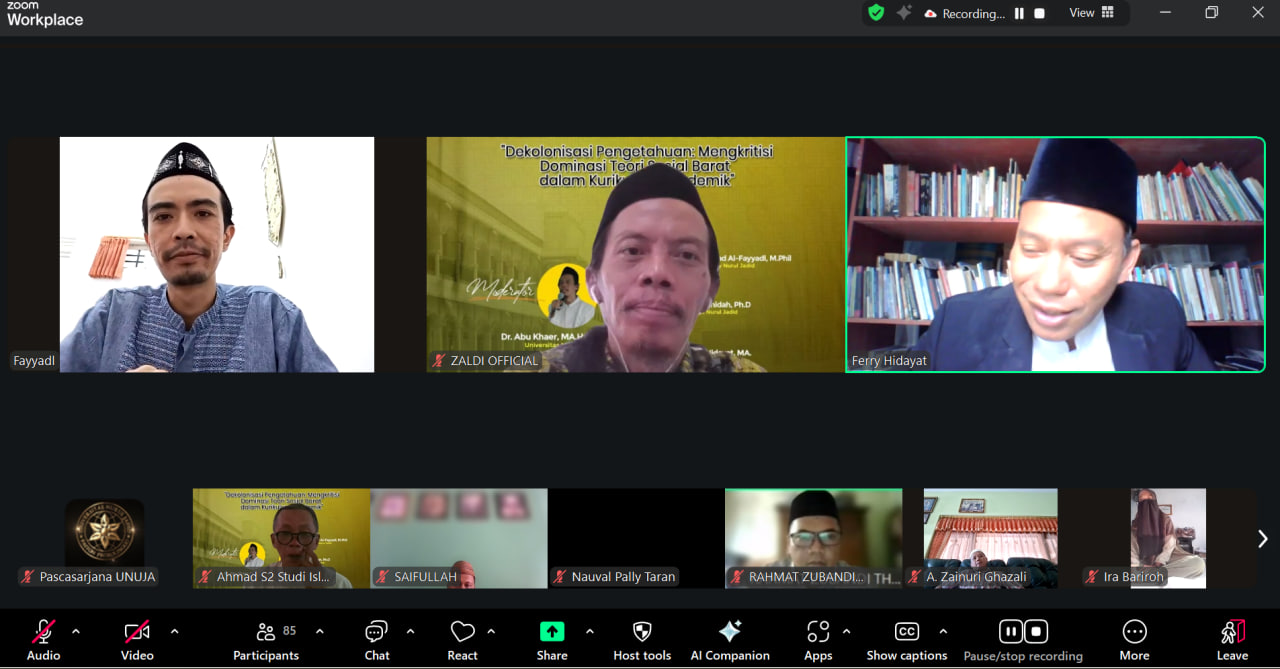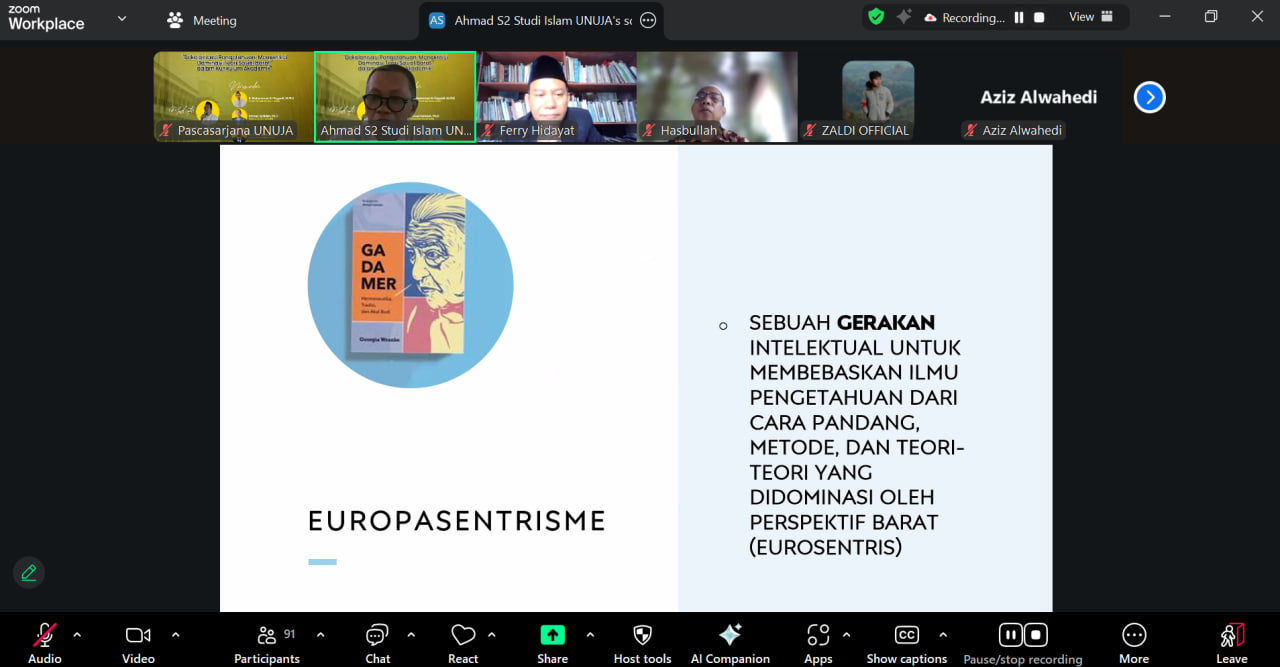UNUJA Holds National Webinar: Decolonizing Knowledge to Address the Crisis of Western Social Theory Dominance
Thursday, 9 October 2025
Accessed: 337 time

Paiton, October 5, 2025 – Amidst the strong currents of globalization and the dominance of Western social theories that are often positioned as the main reference in Indonesia’s higher education curriculum, the Doctoral Program in Islamic Studies at the Postgraduate School of Universitas Nurul Jadid (UNUJA) convened a National Webinar entitled “Decolonizing Knowledge: Critiquing the Dominance of Western Social Theory in Academic Curricula” on Sunday (10/05) at 1:00 PM WIB.
The event, attended by 89 participants consisting of students, lecturers, and education practitioners, provided an intellectual forum to critically reflect on the future direction of knowledge development in Indonesia. The discussion was moderated by Dr. Abu Khaer, MA., Hum., a lecturer at UNUJA Postgraduate School, and featured three distinguished speakers with expertise in philosophy, social sciences, and contemporary Islamic studies.
In his presentation, Dr. Ferry Hidayat, MA. (Lecturer at Universitas Gadjah Mada, Yogyakarta) emphasized that academic curricula in Indonesia remain overly dependent on Western social constructs. “As a result, we are often trapped in the position of consumers of knowledge rather than producers. Yet, Indonesian society possesses unique social experiences that deserve to serve as theoretical foundations,” he asserted.
Meanwhile, Muhammad Al-Fayyadl, M.Phil. (Director of Ma’had Aly Nurul Jadid) highlighted the significance of integrating pesantren traditions and the intellectual legacy of Islam Nusantara as alternative epistemological frameworks. According to him, decolonization is not about entirely rejecting the West, but about critically engaging with its dominance in order to establish a more equal dialogue. “Pesantren holds a wealth of intellectual traditions that can enrich global discourse. It is time we excavate and formulate them within the academic sphere,” he remarked.
Similarly, Ahmad Sahidah, Ph.D. (Lecturer at UNUJA Postgraduate School) stressed the importance of encouraging younger generations to break free from rigid theoretical frameworks that lack contextual relevance. He noted that decolonization represents a path toward intellectual independence. “Knowledge must align with our own social realities, not merely reproduce frameworks from outside,” he affirmed.

This webinar not only broadened participants’ insights but also produced strategic implications. Internally, UNUJA reaffirmed its commitment to fostering a critical scholarly tradition rooted in local values. Externally, the event contributed to a broader national intellectual movement aimed at reducing reliance on Western social theories, while at the same time opening spaces for collaboration with various academic institutions to build a more sovereign body of knowledge.
The urgency of such discourse is particularly evident in today’s context. In the digital era, where the flow of global information and theories grows ever stronger, Indonesia must ensure that its curricula do not merely import knowledge, but also succeed in exporting intellectual contributions grounded in its own socio-cultural experiences. Through this webinar, UNUJA reaffirmed its identity as a pesantren-based university that not only preserves tradition but also generates new ideas in response to contemporary challenges.
Related News

Jl. PP Nurul Jadid, Dusun Tj. Lor, Karanganyar, Kab. Paiton, Probolinggo Regency, East Java 67291
+628883077077pasca@unuja.ac.id
